Monthly Market Report: September 2023
Rising Interest Rates Create Headwind for Markets
Prepared by Brandon Yee, CFA, CAIA, and Thomas Connelly, CFA, CFP®
DEVELOPED MARKETS
Developed Markets Continue to Fall
In the month of September, international developed stock markets returned -3.37%. The U.K. and Japan recorded returns of -0.84% and -2.10%, respectively. The U.S. and Europe ex UK lagged other markets. International developed markets are up 6.73% YTD while the U.S. market is up 13.13%. Markets fell as investors weighed the potential impact of extended restrictive monetary policy on economic activity. The U.S. market is up YTD due to the rally in U.S. technology stocks and the expansion of valuation multiples. These U.S. technology companies will need to grow their earnings at a high rate to warrant these high valuations.
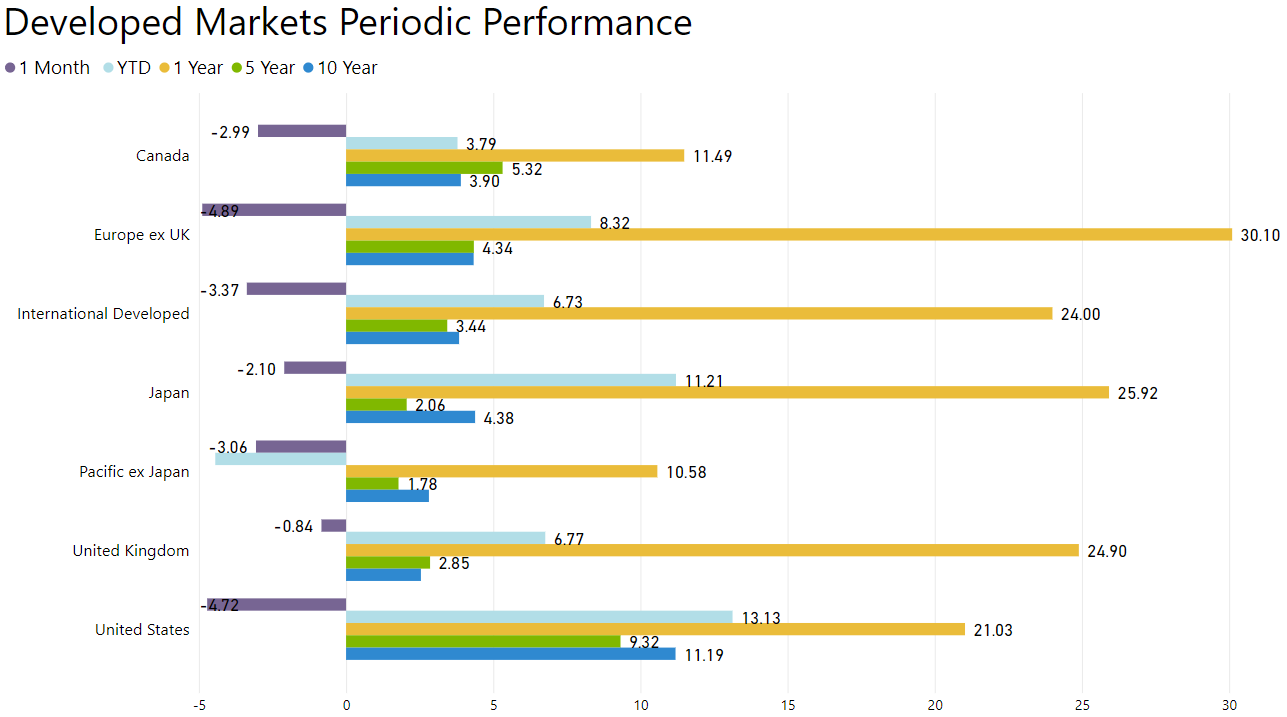
EMERGING MARKETS
Emerging Markets Drop
Broader emerging markets posted a -1.95% return for the month, holding up better than developed markets. India and Brazil recorded returns of 1.67% and 0.21%, respectively. China’s economy continues to be weighed down by weaker corporate capital expenditures and a shaky real estate sector. Korea and Mexico lagged other markets in September. Low valuations relative to the U.S. and international markets may help emerging market investors going forward.
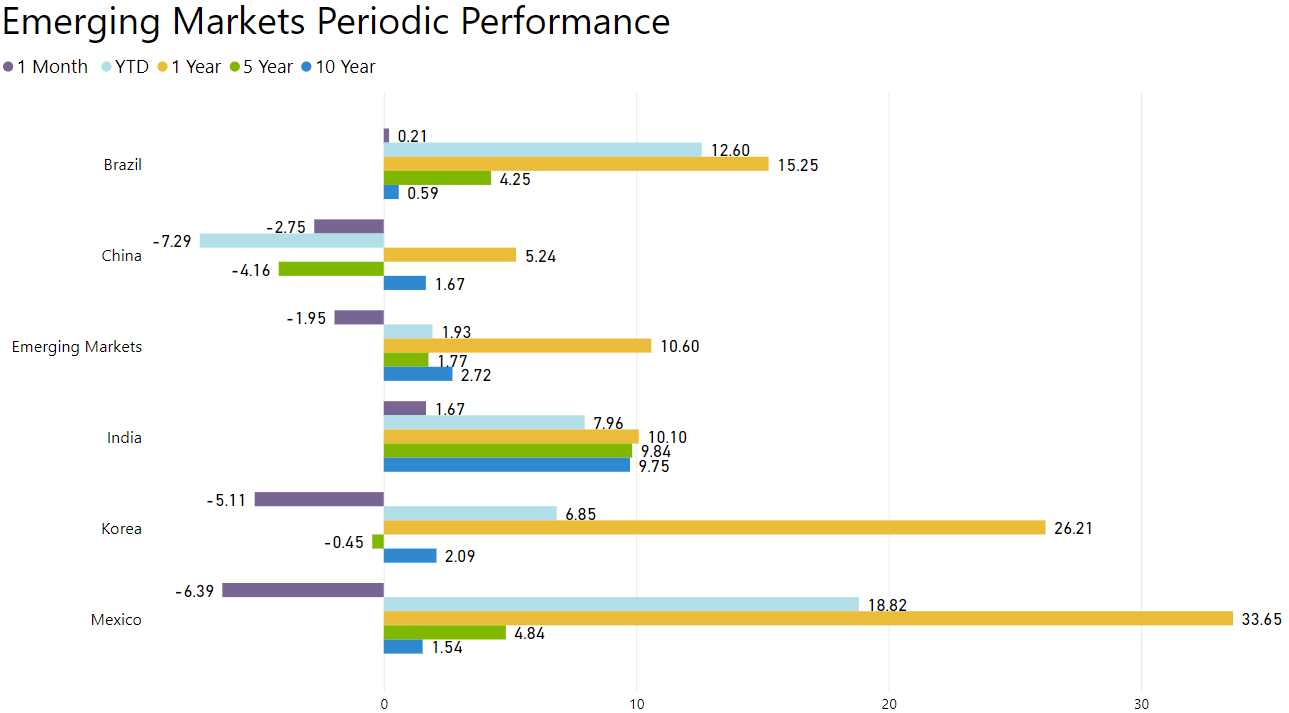
GLOBAL SECTOR
Energy and Financials Outperform
Energy and financials recorded returns of 2.69% and -2.16%, respectively, in September. Information technology and consumer discretionary lagged other sectors this month. The information technology sector is up 30.56% YTD. Much of the rally in this sector has been driven by a small number of mega-cap technology companies. Further tightening of monetary policy by central banks and high valuations could create a tough environment for the information technology sector.
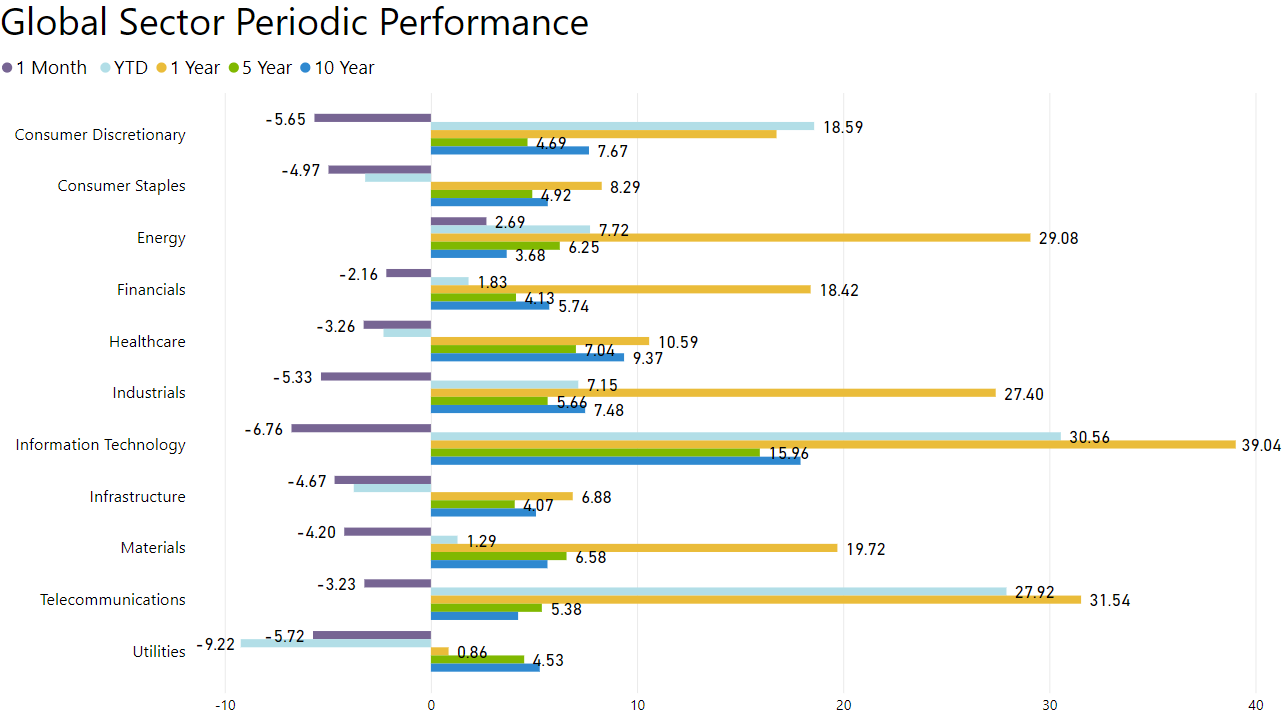
DOMESTIC EQUITY FACTORS
Value Stocks Outperform
In September, value outperformed growth in the large-cap space and small-cap space. Momentum recorded a return of -4.72%. Value stocks across the world continue to trade at large discounts relative to growth stocks. Value-oriented sectors such as energy, financials, and materials have underperformed this year after a strong performance in 2022.
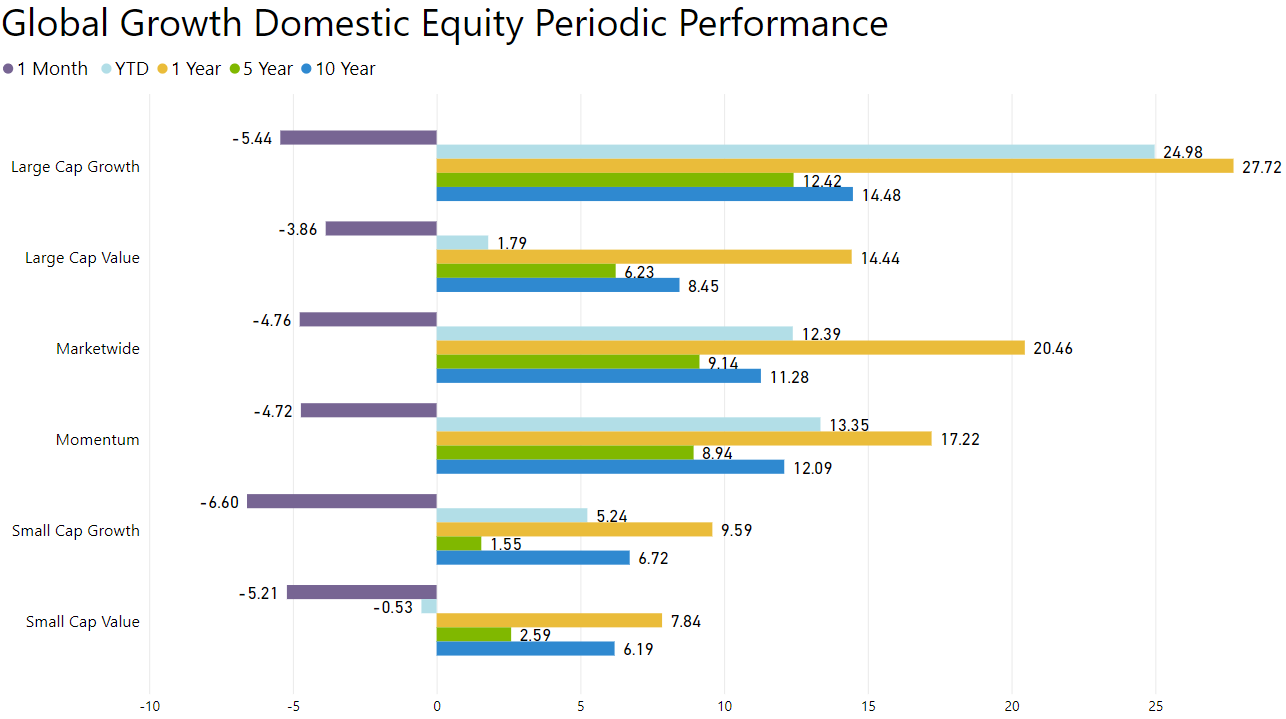
FOREIGN EQUITY FACTORS
Value Outperforms in International Markets
In the international developed markets, value outperformed growth in the large-cap space and small-cap space for the month. Momentum recorded a return of -3.31% while small-cap emerging market stocks posted a return of -2.12%. The YTD performances of value stocks and growth stocks are now diverging in favor of value. Small-cap value stocks have outperformed small-cap growth stocks YTD and over the past five years. Valuations of value stocks are still very low relative to growth stocks in both international developed and emerging markets, which is consistent with the US market. Rising interest rates may also pose more of a risk to growth stocks than value stocks.
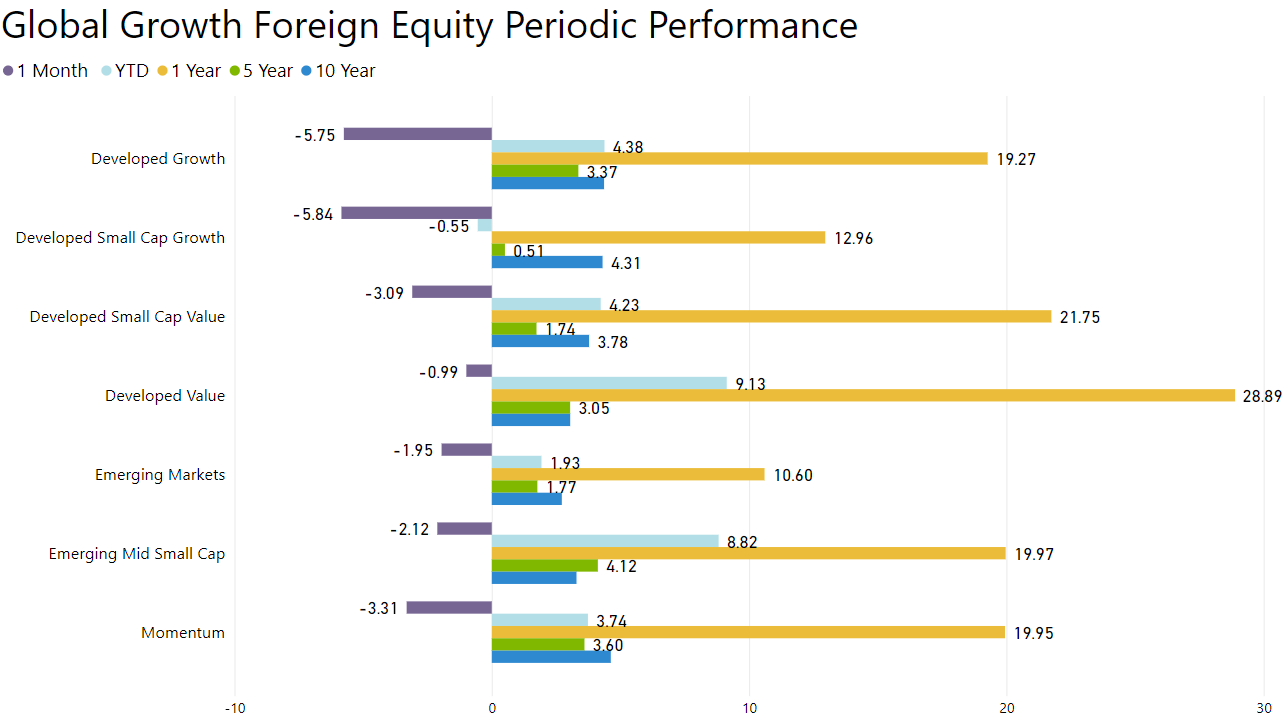
LIQUIDITY PROVIDERS
Year Over Year CPI Increases Slightly
In September, the three-month Treasury bill index returned 0.46%. From the beginning of 2022 through the end of September 2023, the annualized interest rate on the 90-day Treasury bill increased from 0.08% to 5.55%. Savers are now getting paid much more interest. Real interest rates are positive with the CPI increasing by 3.71% over the past year through the end of August.
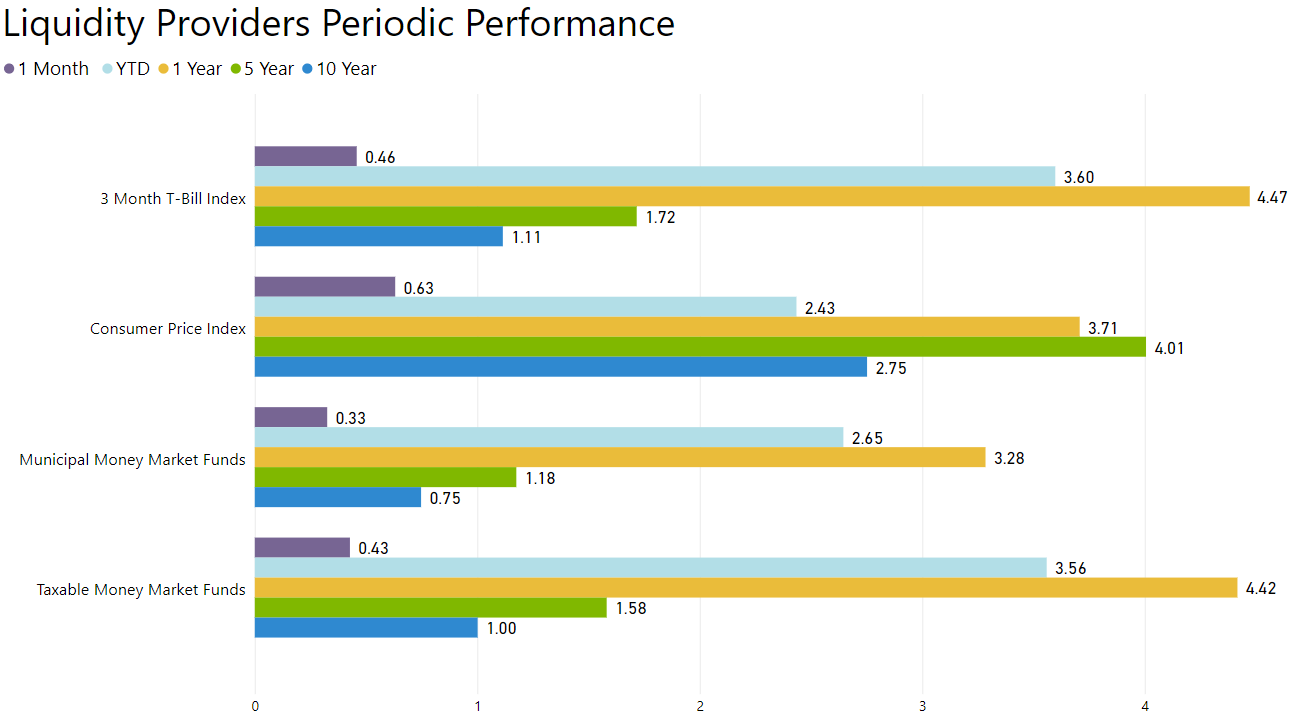
DISINFLATION DEFLATIONARY HEDGES
Fixed Income Investments Mixed
The returns of deflationary hedges were mostly negative for the month. The Bloomberg Barclays U.S. Agg Bond Index returned -2.54% for the month. In September, leveraged loans and catastrophe bonds recorded returns of 0.96% and 0.87%, respectively. Catastrophe bonds are up 15.36% YTD. Insurance-linked securities like catastrophe bonds are benefiting from higher premiums that insurance companies are demanding from buyers. The higher premiums are a result of the larger realized losses in recent years experienced by the insurance companies. Longer duration fixed income was negatively impacted by rising interest rates.
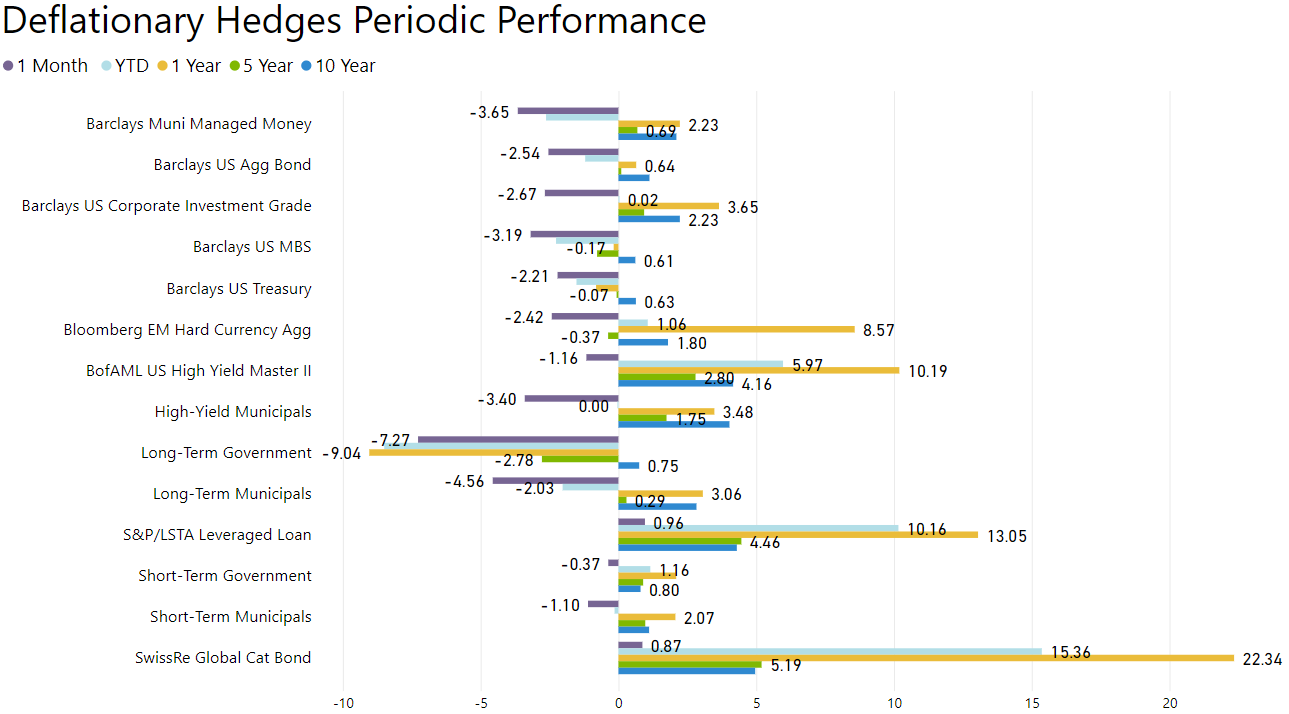
INFLATION SENSITIVE INVESTMENTS
WTI Crude Oil Price Rises
Inflation-sensitive investment returns were mostly negative for the month except for WTI crude oil and MLPs. WTI crude oil and MLPs returned 9.91% and 3.18%, respectively, in September. The Bloomberg Commodity index posted a return of -0.69%. Gold bullion is up 3.13% YTD even though short-term interest rates and real yields continue to rise. Oil prices were up for the month as OPEC extended their production cuts and inventories remained tight. Capital expenditures by oil companies have been muted in recent years, which will impact future supply. Consumers may face spikes in oil prices if demand picks up and supply remains constrained.
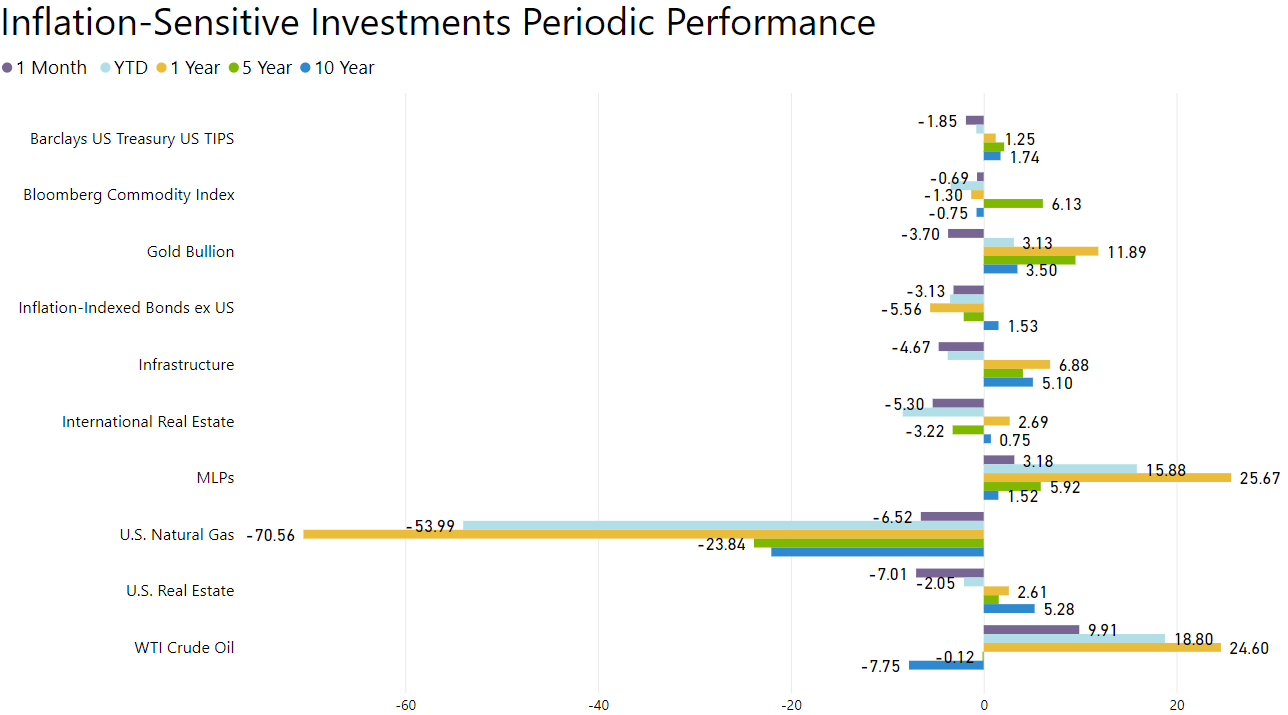
WORLD CURRENCIES
U.S. Dollar Mixed Versus Other Currencies
Over the past three months, the U.S. dollar appreciated against all major world currencies. Over the past year, the U.S. dollar strengthened against the Japanese Yen, Australian dollar, and Chinese Yuan. The continuation of U.S. fiscal and trade deficits may weigh on the U.S. dollar in the medium-term to long-term. Gross federal debt to GDP stands at 120% and is forecasted to increase throughout the decade.
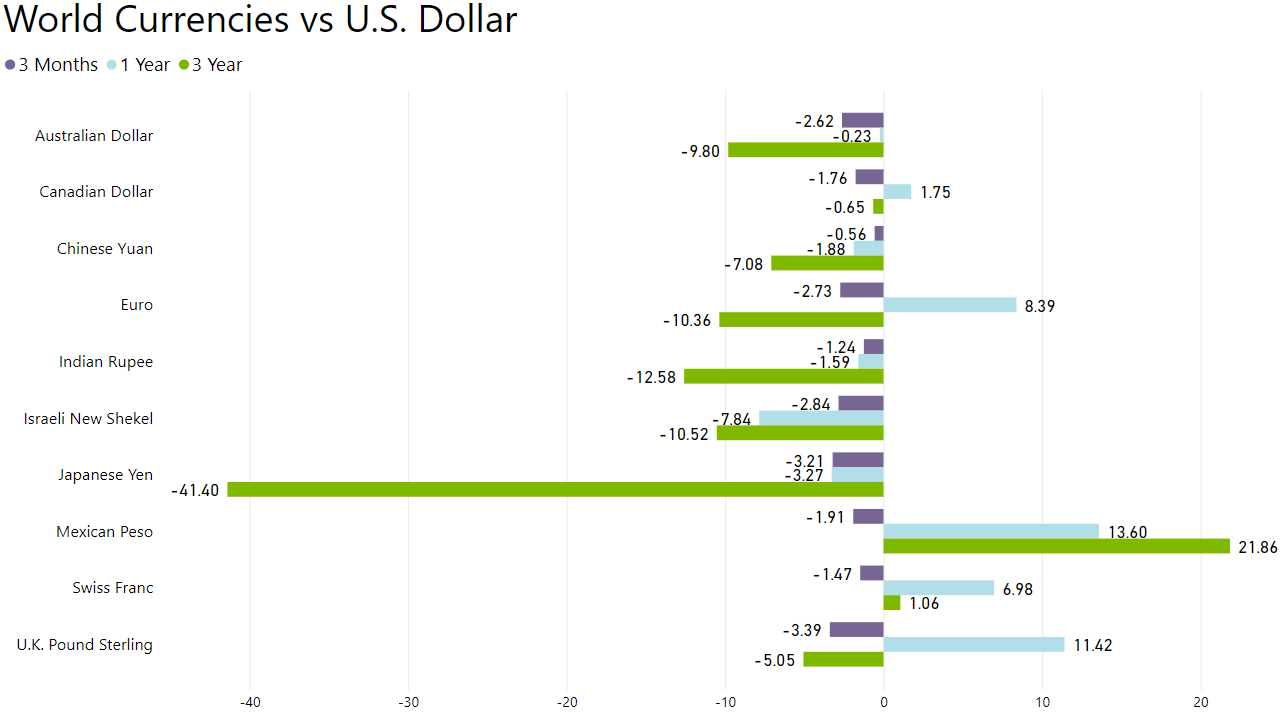

Brandon Yee, CFA, CAIA – Research Analyst
Brandon conducts investment due diligence for Versant Capital Management, and designs and implements tools and processes to support the firm’s research. His background in biology and finance help him to look at challenges from multiple angles, resulting in unique and well-rounded approaches and solutions.
Disclosure: Please remember that past performance may not be indicative of future results. Different types of investments involve varying degrees of risk, and there can be no assurance that the future performance of any specific investment, investment strategy, or product (including the investments and/or investment strategies recommended or undertaken by Versant Capital Management, Inc.), or any non-investment related content, made reference to directly or indirectly in this article will be profitable, equal any corresponding indicated historical performance level(s), be suitable for your portfolio or individual situation, or prove successful. Due to various factors, including changing market conditions and/or applicable laws, the content may no longer be reflective of current opinions or positions. Moreover, you should not assume that any discussion or information contained in this article serves as the receipt of, or as a substitute for, personalized investment advice from Versant Capital Management, Inc. To the extent that a reader has any questions regarding the applicability of any specific issue discussed above to his/her individual situation, he/she is encouraged to consult with the professional advisor of his/her choosing. Versant Capital Management, Inc. is neither a law firm nor a certified public accounting firm and no portion of the article content should be construed as legal or accounting advice. If you are a Versant Capital Management, Inc. client, please remember to contact Versant Capital Management, Inc., in writing, if there are any changes in your personal/financial situation or investment objectives for the purpose of reviewing/evaluating/revising our previous recommendations and/or services. A copy of the Versant Capital Management, Inc.’s current written disclosure statement discussing our advisory services and fees is available upon request.
